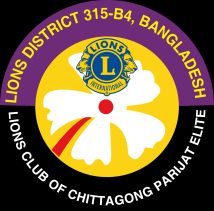What is LEO?
Leadership – Experience – Opportunity. Those are just a few of the rewards young people gain from participating in Leos. They also happen to be the values that create the acronym of our club name. In total, more than 144,000 young people in 144 countries are proud to serve others in their local communities and to call themselves Leos. These young community leaders are friendly, active and dedicated to creating new and exciting opportunities by participating in their local Leo clubs and social and professional connections are an additional benefit for Leos.
There are two tracks of the Leo Club Program. Alpha Leo clubs are those that consist of members between 12 and 18 years of age. Omega Leo clubs are those that consist of members between 18 and 30 years of age. The Leo Club Program’s maximum age of membership is 30 years of age, though it is at the discretion of the Lion’s district to enforce younger upper-age limits for Omega clubs. There are no major differences in the operations or logistics of Alpha and Omega Leo Clubs.
What are Leo Clubs?
Leo clubs are an official activity of Lions Clubs International that encourages young men and women to serve others in their community and around the world.
Leo clubs are sponsored by local lions clubs and may be either school-affiliated or community based.
Leo club activities include regular meetings, service projects and social functions.
The Leo motto – Leadership, Experience, and Opportunity – is fulfilled as members work together in response to the needs of others.
History of Leoism
Leo Clubs History Back in 1957, Graver was the coach of the Abington High School, Pennsylvania, USA, baseball team. Graver was also an active member of the Glenside, Pennsylvania, Lions Club. With fellow Lion, William Ernst, Graver talked about starting a service club for high school boys. “The Kiwanians had their Key Clubs and the Rotarians had their Wheel Club (since changed to Interact Clubs),” Ernst is quoted as saying in an October 7, 1976 newspaper article in “The Evening Bulletin.” So they asked their fellow Lions for support. Without hesitation, the Glenside Lions agreed that a Lions youth group was a good idea. Graver and Ernst set to work. “We needed a nucleus, a group of kids to start with,” stated Ernst. “So we got Jim’s son to come to the first meeting with his whole baseball team.” Nine sophomore, junior and senior boys joined the group of 26 baseball players. Together, the 35 teens formed a club. On December 5, 1957, the Glenside Lions presented a charter to the Abington High School Leo Club. As the world’s first Leo club, the group created the Leo acronym – Leadership, Equality, Opportunity (Equality was later changed to Experience.) And, the group chose maroon and gold – their school colors – to serve as the Leo club colors. An Idea Whose Time Had Come The Abington Leos were a singular entity until 1963. In that year, a Leo club was formed at the Tamaqua Area High School in Pennsylvania. Shortly thereafter, a former Philadelphia Lion formed a Leo club in New York. By 1964, there were 27 Leo clubs in Pennsylvania and one in New York. The circle of junior service clubs was expanding. In October 1967, the board of directors of Lions Clubs International adopted the Leo Club Program as an official program of the association. Open to males and females, the objective of the Leo Club Program was (and still is): “…to provide the youth of the world (with) an opportunity for development and contribution, individually and collectively, as responsible members of the local, national and international community.” In 1968, newly formed Leo clubs began sending their requests for club certification to International Headquarters. On October 17, 1969, forms requesting certification for the Abington High School Leo Club reached headquarters. On this date, the world’s original Leo club was formally recognized as a part of the international Leo program. Leo John Hebert of Baederwood, Pennsylvania, served as president of the Abington High School Leo Club. Today, the Leo Club Program is stronger than ever. Community service remains the cornerstone of the program. Like their Lion counterparts, Leo club members enjoy serving their neighbors and watching positive results unfold.
